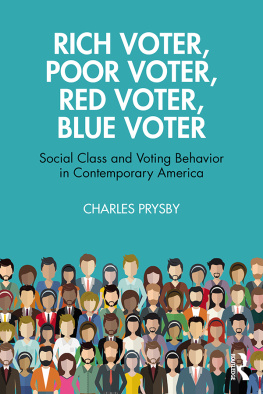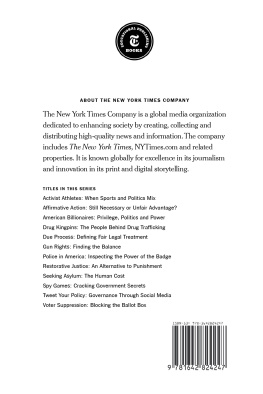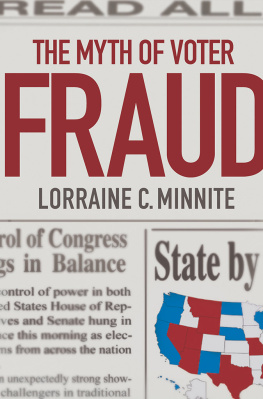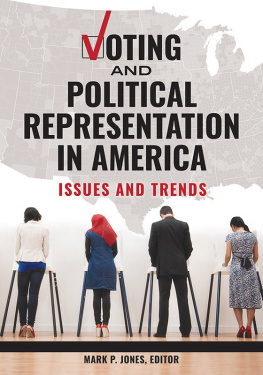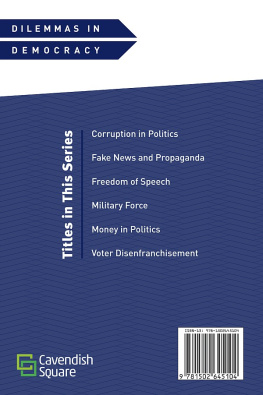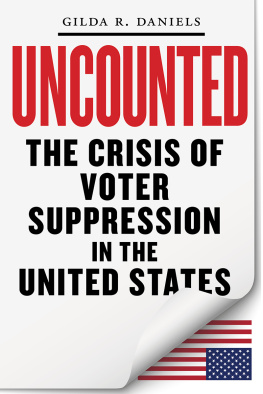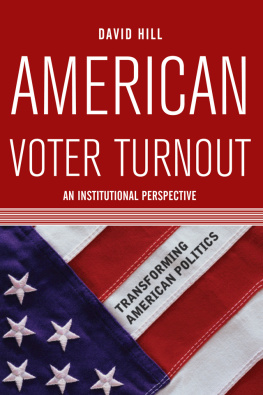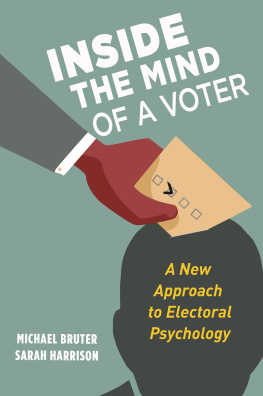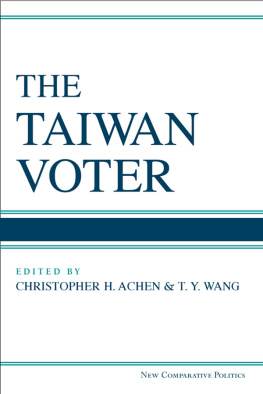Excellent! An over-time analysis of the factors that impact elections from one of the few people able to do it. From class and culture to white identity, it is all there. Special attention is paid to the vote in 2012 and 2016. An original and creative contribution to our understanding of the dynamics of elections. Mandatory reading!
William Crotty, Thomas P. ONeill, Jr. Chair in Public Life and Emeritus Professor of Political Science, Northeastern University
This book offers a much-needed update on social class and voting behavior in presidential elections. Prysby gives careful thought on how to measure social class, and conducts a systematic analysis that is both well executed and convincing. This work makes a major contribution to the academic literature. Highly recommended to anyone who wants to understand how the relationship has changed between social class and voting behavior during the first two decades of this century.
Peter L. Francia, East Carolina University
Rich Voter, Poor Voter, Red Voter, Blue Voter
This book examines the changing relationship between social class and voting behavior in contemporary America. At the end of the 20th century, working-class white voters were significantly more Democratic than their middle-class counterparts, as they had been since the 1930s. By the second decade of the 21st century, that long-standing relationship had reversed: Republicans now do better among working-class whites. While Trump accentuated this trend, the change began before 2016, something that has not been fully appreciated or understood.
Charles Prysby analyzes this development in American politics in a way that is understandable to a wide audience, not just scholars in this field. Drawing on a wealth of survey data, this study describes and explains the underlying causes of the change that has taken place over the past two decades, identifying how social class is directly related to partisan choice. Attitudes on race and immigration, on social and moral issues, and on economic and social welfare policies are all part of the explanation of this 21st century development in American political trends.
Rich Voter, Poor Voter, Red Voter, Blue Voter: Social Class and Voting Behavior in Contemporary America is essential reading for scholars, students, and all others with an interest in American elections and voting behavior.
Charles L. Prysby is a professor of Political Science at the University of North Carolina at Greensboro. He specializes in American elections, voting behavior, and political parties. His most recent book, coauthored with David Holian, is Candidate Character Traits in Presidential Elections (Routledge, 2015).
First published 2020
by Routledge
52 Vanderbilt Avenue, New York, NY 10017
and by Routledge
2 Park Square, Milton Park, Abingdon, Oxon OX14 4RN
Routledge is an imprint of the Taylor & Francis Group, an informa business
2020 Taylor & Francis
The right of Charles L. Prysby to be identified as author of this work has been asserted by him in accordance with sections 77 and 78 of the Copyright, Designs and Patents Act 1988.
All rights reserved. No part of this book may be reprinted or reproduced or utilised in any form or by any electronic, mechanical, or other means, now known or hereafter invented, including photocopying and recording, or in any information storage or retrieval system, without permission in writing from the publishers.
Trademark notice: Product or corporate names may be trademarks or registered trademarks, and are used only for identification and explanation without intent to infringe.
Library of Congress Cataloging-in-Publication Data
A catalog record for this title has been requested
ISBN: 978-0-367-33428-4 (hbk)
ISBN: 978-0-367-33429-1 (pbk)
ISBN: 978-0-429-31982-2 (ebk)
For Anita, Nicole, and Michelle
I have been interested in social class and political behavior for a long time. When I was an undergraduate student at the Illinois Institute of Technology in the 1960s, I took a course in political science, and one of the assigned books for the course was Seymour Martin Lipsets Political Man. I found that books discussion of the social bases of political behavior to be much more interesting than the engineering that I was studying. I decided that I would rather be a political scientist, so I changed my major and made plans to go to graduate school. Fortunately, that decision turned out well, as I went on to earn my Ph.D. at Michigan State University. My interest in social class and political behavior continued through graduate school, and I wrote my dissertation on working-class voting in Chile. However, my interests drifted away from social class and voting as my academic career progressed. I studied and wrote on contextual effects on political behavior, on various aspects of southern politics, and, most recently, on the role of candidate character traits in presidential elections. But the 2016 presidential election campaign rekindled my interest in social class and voting behavior. The media discussions of Donald Trumps appeal to white working-class voters led me to explore how social class is related to partisan choice in contemporary America. In writing this book, I have tried hard to make the arguments and the evidence comprehensible to a broad audience, not just political scientists interested in voting behavior. One reason that I have done so is because I think that some of the discussions of this topic in the mainstream media have been incomplete or even misleading. I hope that this study contributes to a more complete and accurate understanding of the changing relationship between social class and voting behavior.
I could not have completed this project without the help that I received from others. First of all, I am grateful for the support that the University of North Carolina provided. The University awarded me a research leave for the spring semester of 2019. Without that research leave, this book would not have been completed in a timely fashion. UNCG also provided funds for Kaylee Faw, an undergraduate political science major at UNCG, to work as a research assistant for me. Kaylee participated in all stages of the research and writing, from data collection and bibliographic work in the early stages to proofreading at the end. Her assistance was invaluable. Several fellow political scientists assisted me with this project, and I am pleased to thank them for their help. Bill Crotty, professor emeritus at Northeastern University, read several chapters and provided useful feedback. Peter Francia, a professor at East Carolina University, helped me to understand the role of labor unions in American politics. Two of my UNCG political science colleagues, David Holian and Susan Johnson, read and commented on parts of the manuscript, and I appreciate their contributions. Also, my wife, Anita, and my two daughters, Nicole and Michelle, read most of the manuscript to see if my arguments and presentation would make sense to a broad audience. Their suggestions helped me to make points clearer to those unfamiliar with the political science literature on this topic. Finally, my editor at Routledge, Natalja Mortensen, was very encouraging throughout this project. This was the second time that I have worked with her, and I am pleased that the second time has been as rewarding as the first time was. Naturally, any errors or shortcomings that remain in the book are my responsibility.

